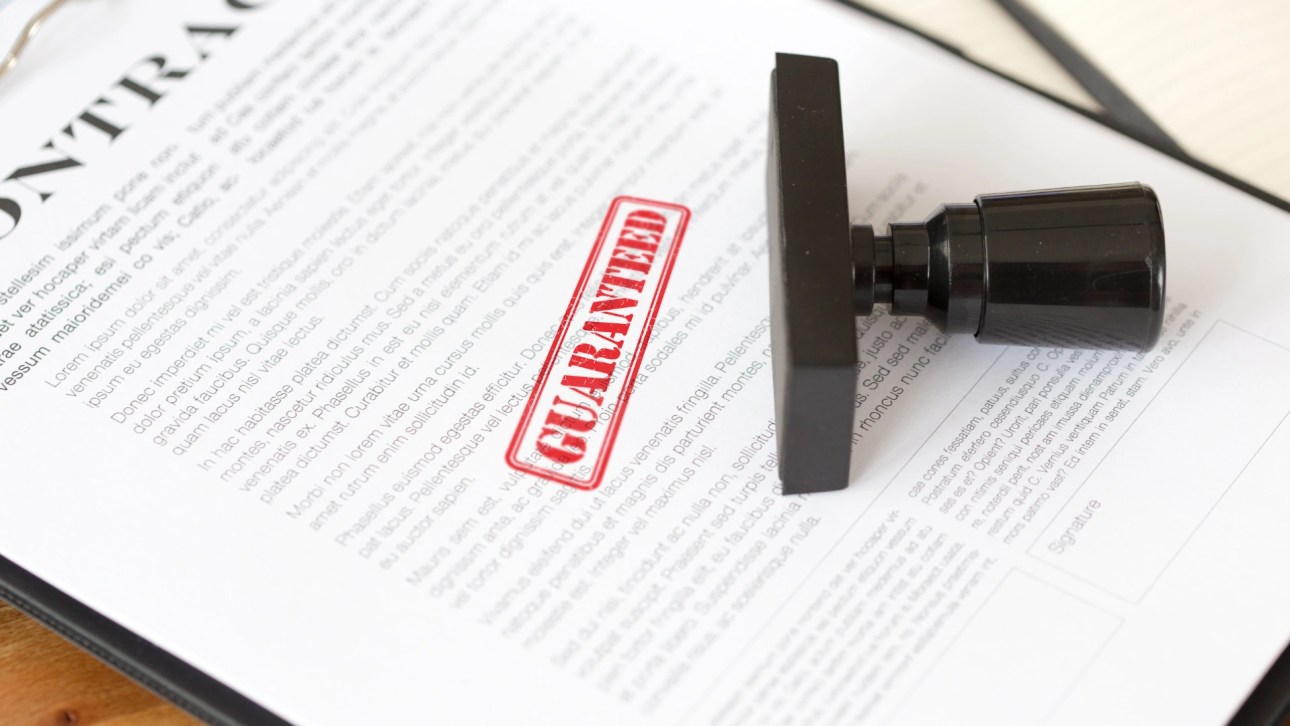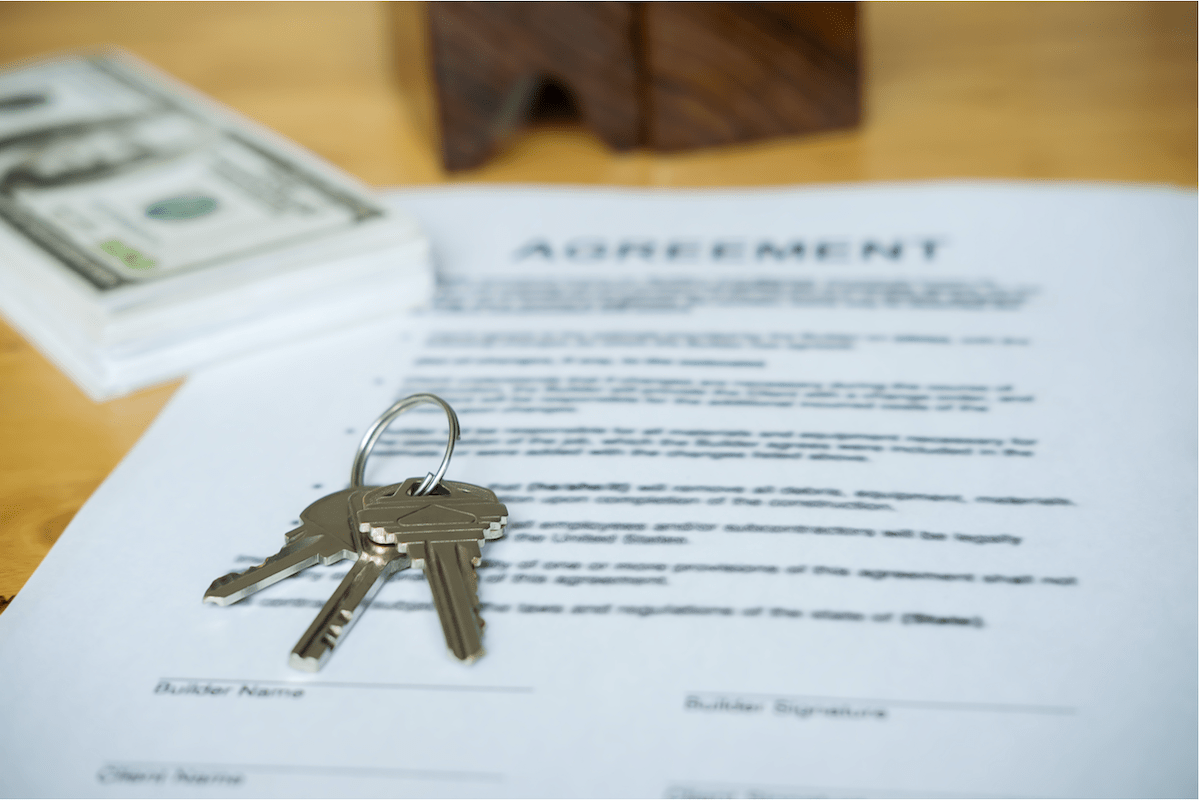Guarantee in Real Estate | All You Need to Know
Published 10/01/2024 • Updated 10/30/2025
FOLLOW US
When dealing with real estate transactions, one term you’ll likely encounter is a “real estate guarantee.” Real estate guarantees play a critical role in securing loans and ensuring the successful completion of development projects. In this guide, we’ll explore what a guarantee is in real estate, the different types of guarantees, and alternatives you might consider.
What Is a Real Estate Guarantee?
A real estate guarantee is a legally binding agreement where a third party, known as a guarantor, agrees to repay a loan if the borrower defaults. This arrangement is particularly common in real estate financing, where developers often need substantial funding to complete large-scale projects.
In essence, the real estate guarantee provides security to lenders, ensuring they will recover their funds even if the project does not proceed as planned. The guarantor, usually a financially stable individual or entity, steps in if the borrower cannot meet their obligations.
Who is involved in a Real Estate Guarantee?
Real estate guarantees typically involve several key parties:
- Developer: The party seeking financing to fund a real estate project. Developers usually need significant capital, which they often secure through loans.
- Lender: The financial institution, such as a bank or credit union, providing the loan. The lender requires a guarantee to reduce their risk.
- Guarantor: The third party that backs the loan, providing additional security to the lender. This could be another developer, a corporation, or an individual.
Why are Real Estate Guarantees important?
Real estate guarantees are loan agreements that provide lenders with the confidence needed to invest in large projects. Without a guarantee, lenders might be hesitant to loan large sums, especially for high-risk developments.
The guarantee ensures that the lender can recover their money even in the event of default by the borrower. This makes financing more accessible to developers, allowing them to undertake projects they might not otherwise be able to afford.

Not sure if you should get into a training program for the licensing exam? You can have a taste of what Lexawise can do for you.
What are three common types of Guarantees in Real Estate?
Real estate guarantees come in various forms, each designed to address specific needs and risks. Below are three common types of real estate guarantees:
1. Declining Guarantees
A declining guarantee is structured to reduce the developer’s financial responsibility as the project progresses. Initially, the developer might be fully responsible for the loan. However, as the project reaches certain milestones—such as the completion of construction phases or achieving occupancy—the guarantee amount decreases.
Example:
A developer starts with 100% financial responsibility for the loan. As construction progresses and the building reaches key stages, like completing the exterior or securing tenants, the guarantee amount reduces. This type of guarantee reflects the decreasing risk for the lender as the project nears completion.
2. Bad Boy Guarantees
Bad boy guarantees, also known as recourse carve-out guarantees, protect lenders from unethical actions by the borrower. These guarantees kick in if the borrower engages in activities such as fraud, illegal acts, or bankruptcy filings.
Example:
If a developer commits fraud by misrepresenting the project’s financials to secure better loan terms, the bad boy guarantee would hold them personally liable for the loan. This type of guarantee acts as a deterrent against misconduct, ensuring that the lender’s interests are protected.
3. Completion Guarantees
A completion guarantee ensures that the project will be finished, even if costs exceed the original budget. It holds the developer accountable for any cost overruns, providing lenders with confidence that the project will be completed.
Example:
A developer might face unexpected construction delays due to bad weather or supply chain issues. A completion guarantee ensures that the developer remains responsible for completing the project, even if it means covering additional costs out of pocket.
Other types of Real Estate Guarantees
Payment Guarantee
A payment guarantee ensures that the lender will receive their payments on time, regardless of the borrower’s financial situation. This type of guarantee is often collateralized by the borrower’s assets, providing additional security to the lender.
Example:
A developer might use their personal assets as collateral for a payment guarantee. If the developer fails to make a payment, the lender can claim these assets to cover the missed payment. This type of guarantee provides lenders with peace of mind, knowing that they have a fallback option in case of default.

Five Must-Know Real Estate Loan Clauses: Prepayment and More
Personal Guarantees in Real Estate
A personal guarantee is another common form of assurance in real estate, particularly when it comes to securing loans for projects that may not have sufficient credit history or financial backing on their own. It involves the borrower—often an executive or business partner—personally pledging to repay the loan if the business cannot.
This adds an extra layer of security for lenders, who can then claim the individual’s personal assets if the loan defaults.
How Personal Guarantees work
Personal guarantees are crucial for new or small businesses, like Limited Liability Companies, that may lack the established credit required to secure loans independently. When a personal guarantee is provided, the individual responsible includes their credit history and personal financial details in the loan application. This might include their Social Security Number (SSN) for a credit check and information about their income and assets.
If the business fails to repay the loan, the lender can pursue the individual’s personal assets to recover the debt.
Types of Personal Guarantees
Personal guarantees can be classified into two main types:
- Limited Guarantees: These allow lenders to collect a specific amount or percentage of the outstanding balance from each principal or business owner. For instance, if a business defaults on a loan, each partner might be responsible for 25% of the debt.
- Unlimited Guarantees: Under an unlimited guarantee, the principal is liable for the entire outstanding balance. This type is often required for SBA loans and means the lender can claim the full amount owed from the individual, including liquid assets, real estate, or other personal property.
Risks and considerations
While personal guarantees can make obtaining a loan easier, they also carry significant risks. If the business defaults, the individual can lose personal assets, which could have severe financial consequences. For this reason, it’s essential to carefully review any credit application for terms that require a personal guarantee and understand the full extent of the liability.
Pass Your Real Estate Exam with Ease!
Get 100 FREE practice questions and unlock an exclusive discount on our top-rated exam prep – your first step to passing with confidence!
Two alternatives to Real Estate Guarantees
While real estate guarantees offer security, they are not always necessary or the best option. Developers have alternatives that can help them secure financing without the need for a guarantee.
1. Finding other moneylending parties
Developers might seek alternative lenders who do not require a guarantee. While this approach can reduce financial exposure, it often comes with stricter loan terms, such as higher interest rates or lower loan amounts.
Example:
A developer might choose a private lender who offers a loan without a guarantee. However, the trade-off could be a higher interest rate, which increases the overall cost of the loan.
2. Using a governmental loan
Government loans, such as those provided by the Small Business Administration (SBA), can offer financing without the need for a personal guarantee. These loans often come with specific conditions and may be limited to certain types of projects, like energy-efficient developments.
Example:
A developer working on an eco-friendly housing project might secure a loan from a government agency focused on promoting sustainable construction. While the process might involve more paperwork and longer approval times, it could eliminate the need for a personal guarantee.
Understanding the risks and benefits
While real estate guarantees provide significant benefits to lenders, they also introduce risks for developers and guarantors. These agreements can place a considerable financial burden on the guarantor, especially if the project encounters difficulties. It’s essential for all parties involved to carefully consider the terms and conditions of the guarantee before signing.

Nail the Truth in Lending Act for Your Real Estate Exam
Legal considerations
When entering into a real estate guarantee agreement, it’s crucial to understand the legal implications fully. Guarantors should be aware of their obligations and the potential risks involved. Consulting with a legal professional before signing any guarantee is highly recommended.
Summing-up
Real estate guarantees play a crucial role in securing financing for large-scale developments. They provide lenders with the security they need to invest in projects, ensuring that their funds are protected even if the project doesn’t go as planned. However, developers also have alternatives to consider, allowing them to secure financing without taking on additional personal risk.
